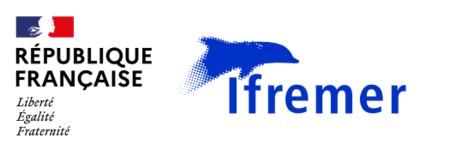The Americas
Canada: GDRI IFREMER-MPO for an ecosystem approach to fisheries
On 16 December 2015, an International Research Network (GDRI) agreement was signed between IFREMER and the Canadian Ministry for Fisheries and Oceans (DFO) in the fields of fisheries and aquaculture. This agreement, called GDRI RECHAGLO for “Responses of populations and communities and their habitats to global change in fisheries and aquaculture”, is active for the 2015-2019 period.
This GDRI initiative is the result of a collaboration set up from 2007 to 2012 on the ecosystem approach for fisheries and the management of fish stocks and their habitats. It will lead to 14 research projects and 10 workshops involving 79 Canadian and French scientists.
The GDRI aims to promote and foster:
- Scientific collaboration activities that address the scientific themes of the GDRI (international visibility),
- Exchange visits for scientists, PhD students, post-doctoral researchers, engineers,
- Sharing of know-how, data and/or information,
- Organisation of common events (e.g. seminars, workshops, training schools, conferences),
- Coordination and structuring of multi-partner research programmes, in particular for collective response to calls for proposals such as H2020.
The scientific programme addresses the ecosystem approach to fisheries in regard to global change and overfishing. It was designed around 5 main themes:
- Assessment of the environmental changes due to climate change and scenarios
- Responses of marine organisms to global change
- Effects of global change on population dynamics in fisheries and aquaculture
- Effect of global change on species distribution, accessibility and connectivity of their habitats and interactions with the spatialisation of fishing
- Effects of global change on communities and food webs
Each theme is coordinated by a pair of French and Canadian researchers. Together, the researchers organise the scientific activities of their theme and propose collaborative actions, workshops, or special topic seminars, etc.
The GDRI is co-directed by IFREMER and DFO and involves various French and Canadian partners (IUEM, CNRS, IRD, UQAR, Université de Moncton, Dalhousie University).
The French side is coordinated by Bruno Ernande (IFREMER – Boulogne-sur-Mer) and Aline Gangnery (IFREMER – Normandy).
United States: IFREMER-NOAA bilateral agreement on oceanography, Atlantic Ocean and its resources
IFREMER and NOAA (National Oceanic and Atmospheric Administration) have a long history of scientific cooperation dating back to the 1970s. Both parties renewed their Memorandum of Understanding in 2013 aiming to federate French-American cooperation in marine sciences.
This agreement demonstrates the common ambition to develop scientific cooperation projects, exchange scientific resources, staff, technical knowledge and lead joint oceanographic cruises on three main topics:
- coastal and marine ecosystems
- climate science and ocean observatories
- ocean exploration.
A certain number of targeted scientific topics of strategic importance for both organisations were identified in 2009. Collaborative actions and projects and/or mobility have come out of some of these topics, e.g. in the areas of oceans & human health; vessels & on-board systems; and physical & biological oceanography.
These bilateral actions are part of the Galway Statement on Atlantic Ocean Cooperation between the EU, the USA and Canada and encourage French, American and Canadian research teams to join forces to enhance their knowledge on the Atlantic Ocean and the sustainable management of its resources, particularly in the context of global change.
Brazil: converging research interests
Brazil occupies a prime position in IFREMER’s objectives contract because it follows convergent paths with France in several respects:
- Shared political and economic interests endorsed by their respective governments;
- Brazil’s pro-active policy to develop the added value of its maritime heritage and its resources and the creation of corresponding scientific programmes (e.g. Amazonia Azul programme, creation of a INCT-Ocean and INPOH);
- Convergence of research funding agencies with a joint French-Brazilian call for proposals (e.g. ANR-FAPESP, ANR/FACEPE);
- Convergence of training programmes with the CIFRE Brazil scheme (ANRT-MESR-CNPQ) which allows PhD students to work in a laboratory or a company and prepare their thesis at the same time;
- Diverse collaborations through joint research projects.
Today, IFREMER’s collaboration with Brazil is centred around three topics:
- marine geosciences and deep-sea ecosystems,
- fisheries biodiversity through studies piloted by the IFREMER station in French Guiana and its collaborations with institutions in the countries that border the states of Parà and Amapa,
- the interface between drainage basins and coastal areas and the emergence of shellfish farming in Brazil in the state of Santa Catarina.
